MIRRORMASK. Little known dark fantasy by Neil Gaiman
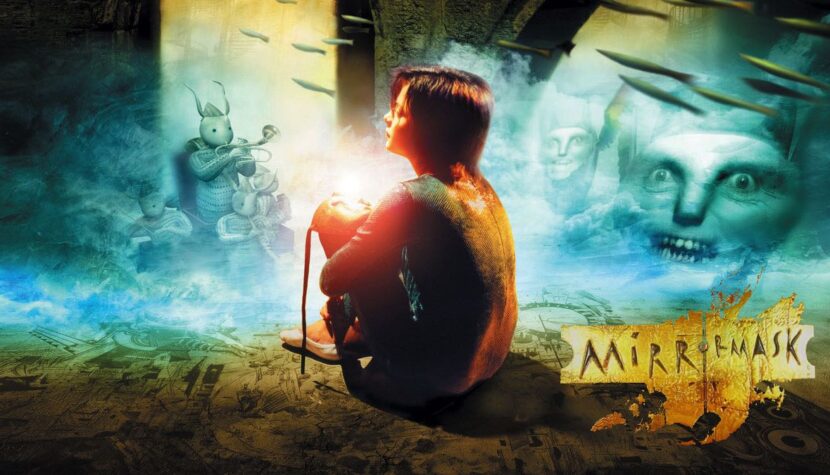
Recently, a serialized adaptation of Sandman and the novel Good Omens (co-written with Terry Pratchett) has appeared, and earlier, the Starz network faithfully brought American Gods to the small screen. Before that, there were, among others, How to Talk to Girls at Parties, the animated Coraline, and Stardust.
At the very beginning of Gaiman’s film adventures was Mirrormask. Today, it’s a dusty production, originally conceived as a direct-to-DVD project, but with limited theatrical distribution, as it turned out. Reviews were fairly unanimous – nothing interesting in terms of plot, but formally, it was an exceptional film. And although the effects have aged terribly, the fantastic vision of the world still holds up.
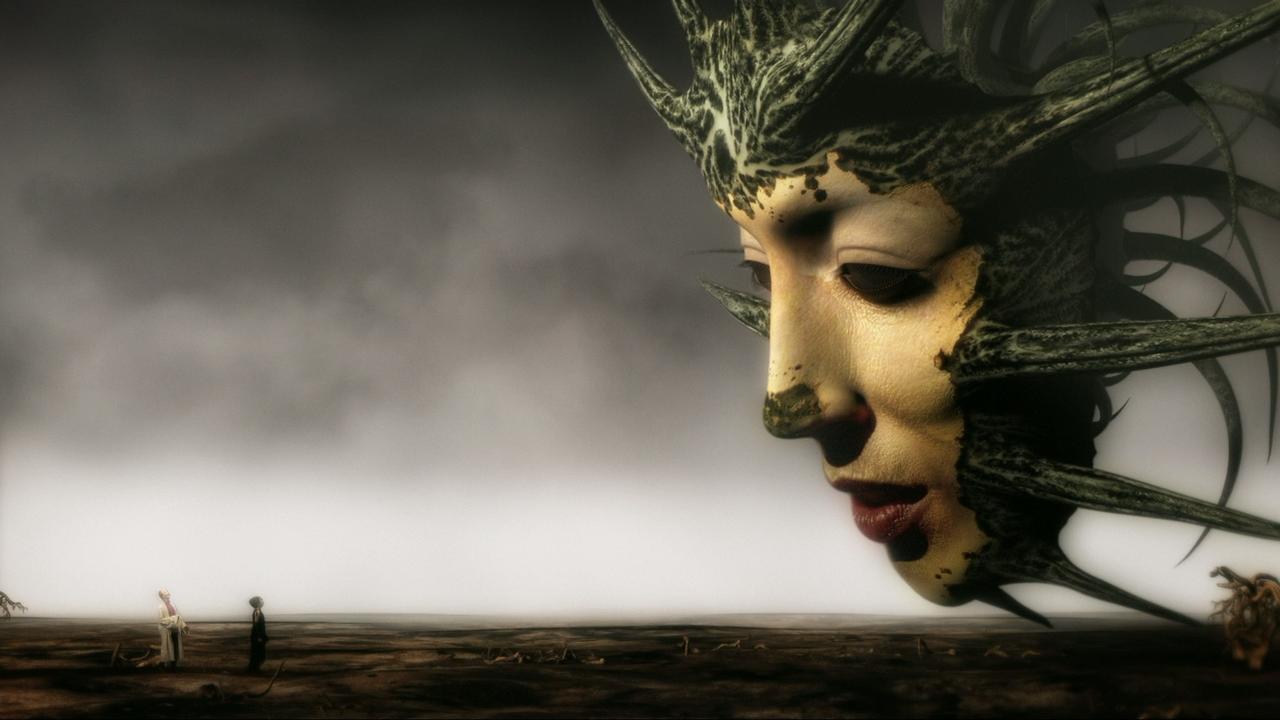
The Campbell family runs a traveling circus. Morris (Rob Brydon) manages it, with the help of his wife Joanne (Gina McKee) and their fifteen-year-old daughter, Helena (Stephanie Leonidas). The girl dreams of a normal life she’s never known and envies the people who come to the performances. She vents her frustration on her mother, who, after one of their discussions, ends up in the hospital. It turns out she’s seriously ill and needs surgery. Meanwhile, the circus isn’t profitable, Morris starts having financial problems, and Helena moves in with her grandmother in a dingy, concrete housing estate. She blames herself for her mother’s condition, feeling helpless and unable to cope with the problems. When the night of Joanne’s surgery arrives, Helena falls asleep and wakes up in an altered reality. It’s as if the world she knows has been turned inside out.
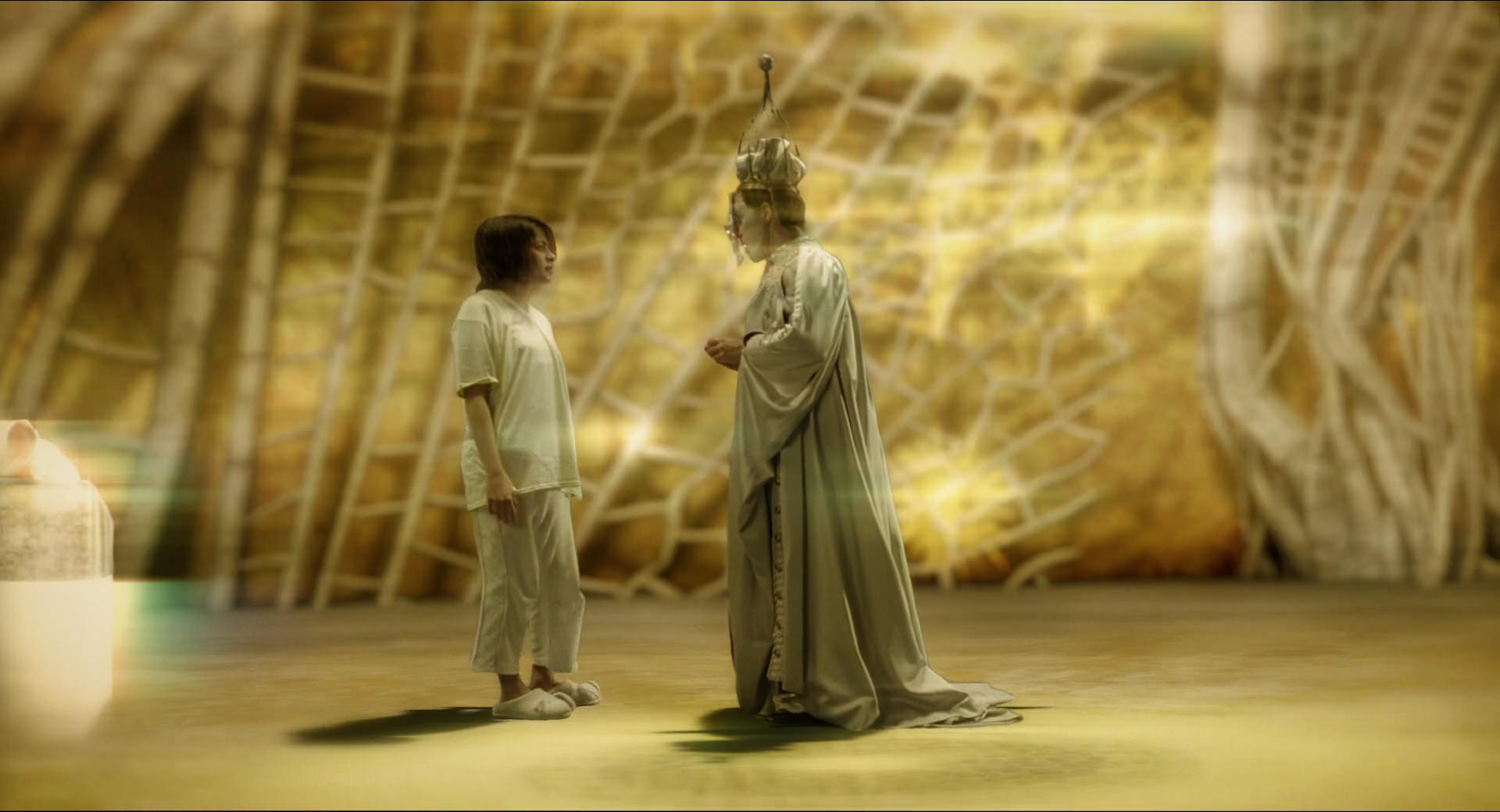
The dingy housing estate looks normal, but it’s differently lit, and circus performers similar to Helena’s acquaintances train in the area – except they wear unsettling masks. After a moment of conversation, one of them is attacked by a wave of darkness and turns into stone, leaving the terrified girl and a juggler, Valentine (Jason Barry), to flee through a small door in the backyard. They find themselves in a city straight out of a dark fairy tale. Helena quickly becomes the object of interest for stick-like constables who arrest her, mistaking her for a missing princess. Disoriented, the girl has no idea what’s going on but allows herself to be escorted to the palace. There, they find out that the queen (the mother’s alter ego) has fallen asleep and cannot be awakened without a certain amulet, which the desperate prime minister (the father’s alter ego) is searching for. Helena decides to help them and, together with Valentine, sets off to the library to find out as much as they can.
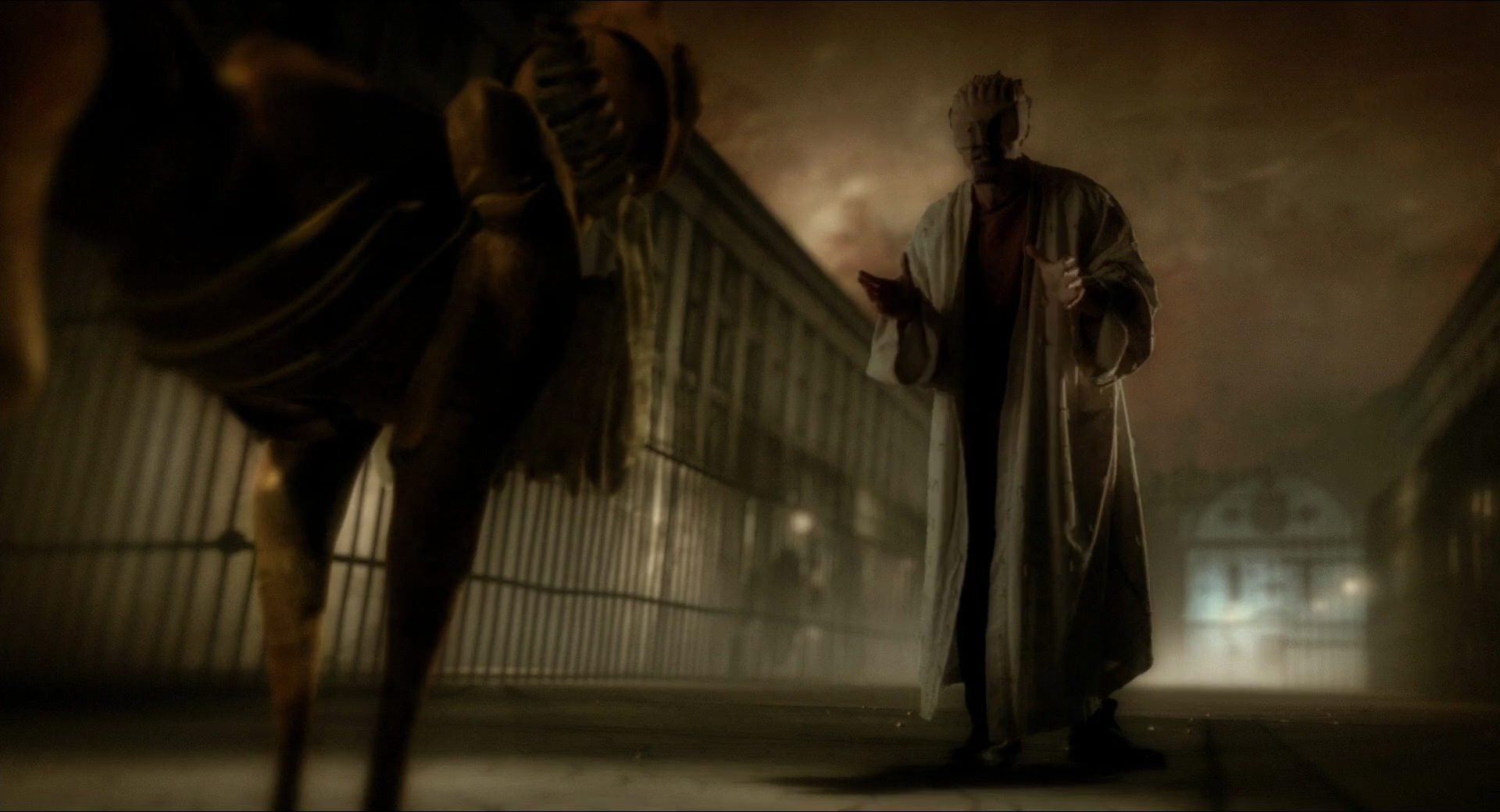
Mirrormask has a simple and predictable plot, and the digitally generated world has aged unfavorably. Timeless is only the vision of debut director Dave McKean, a British illustrator, the graphic artist of the Batman: Arkham Asylum comic, and the designer of music album covers. His design of the city, creatures, and masks was processed into CGI, and the entire film was shot in this environment with a few real actors performing in a green box. Such experiments were popular after the year 2000 and didn’t always succeed (like Immortal – Ad Vitam). However, Mirrormask defends itself with McKean’s ingenuity, who, based on a screenplay co-written with Neil Gaiman, created a world full of interesting details.
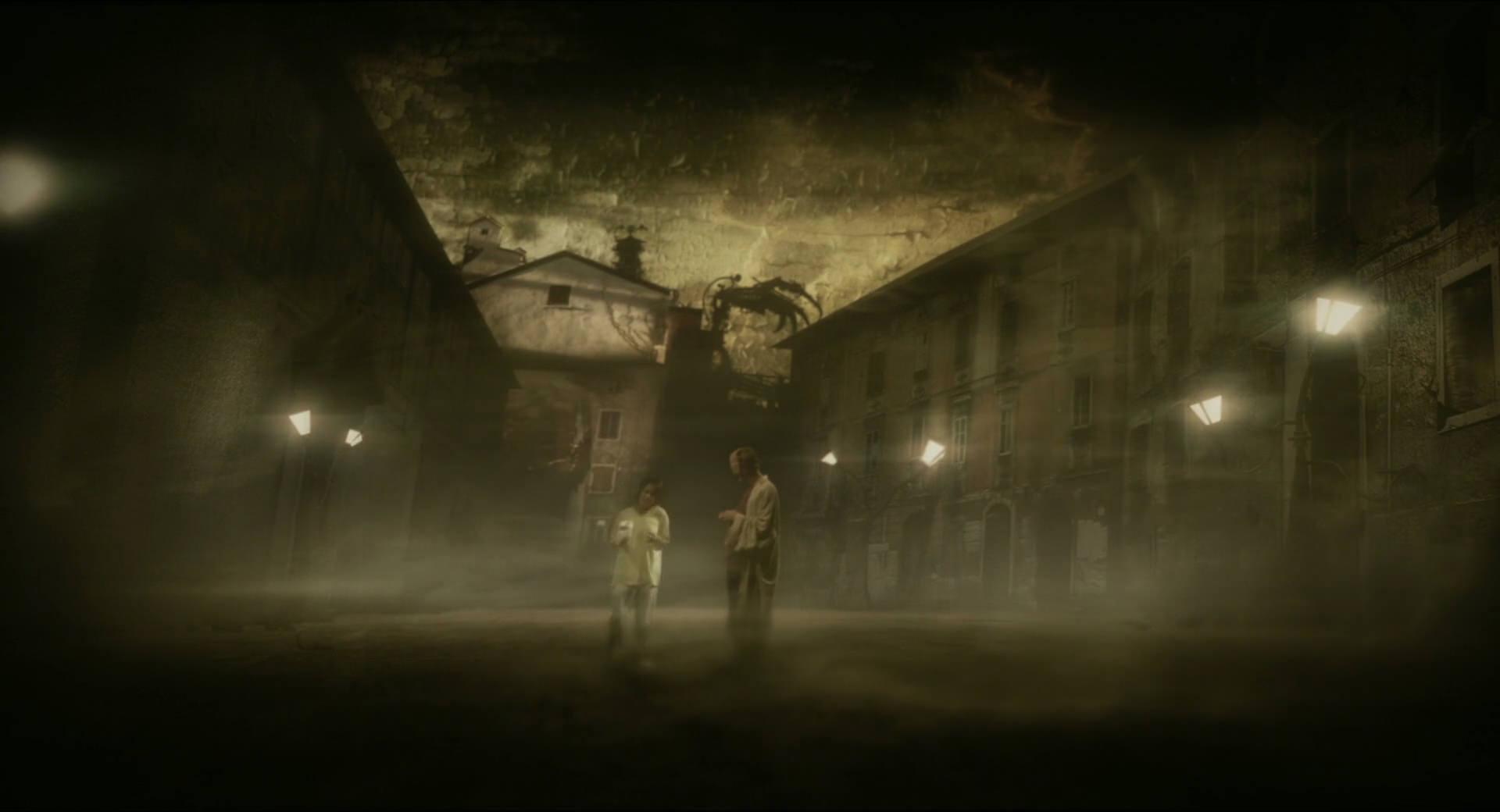
Here, if a book feels offended, it flies back to the library, unless it’s eaten by a sphinx along the way. Sphinxes replace neighborhood cats here, except they prefer nibbling on literature instead of mice. Passersby resemble a mix of crustaceans and everyday objects (e.g., a crab with a pot belly and a head made of a pair of shoes), and among the human-shaped characters, only Helena doesn’t wear a mask, so her face causes widespread surprise. The real and fantastical worlds intersect, which the girl notices in passing. Escorted to the palace, she sees herself sleeping in a room behind what looks like thick glass. Another time, she realizes that the buildings in the city resemble those from her drawings.
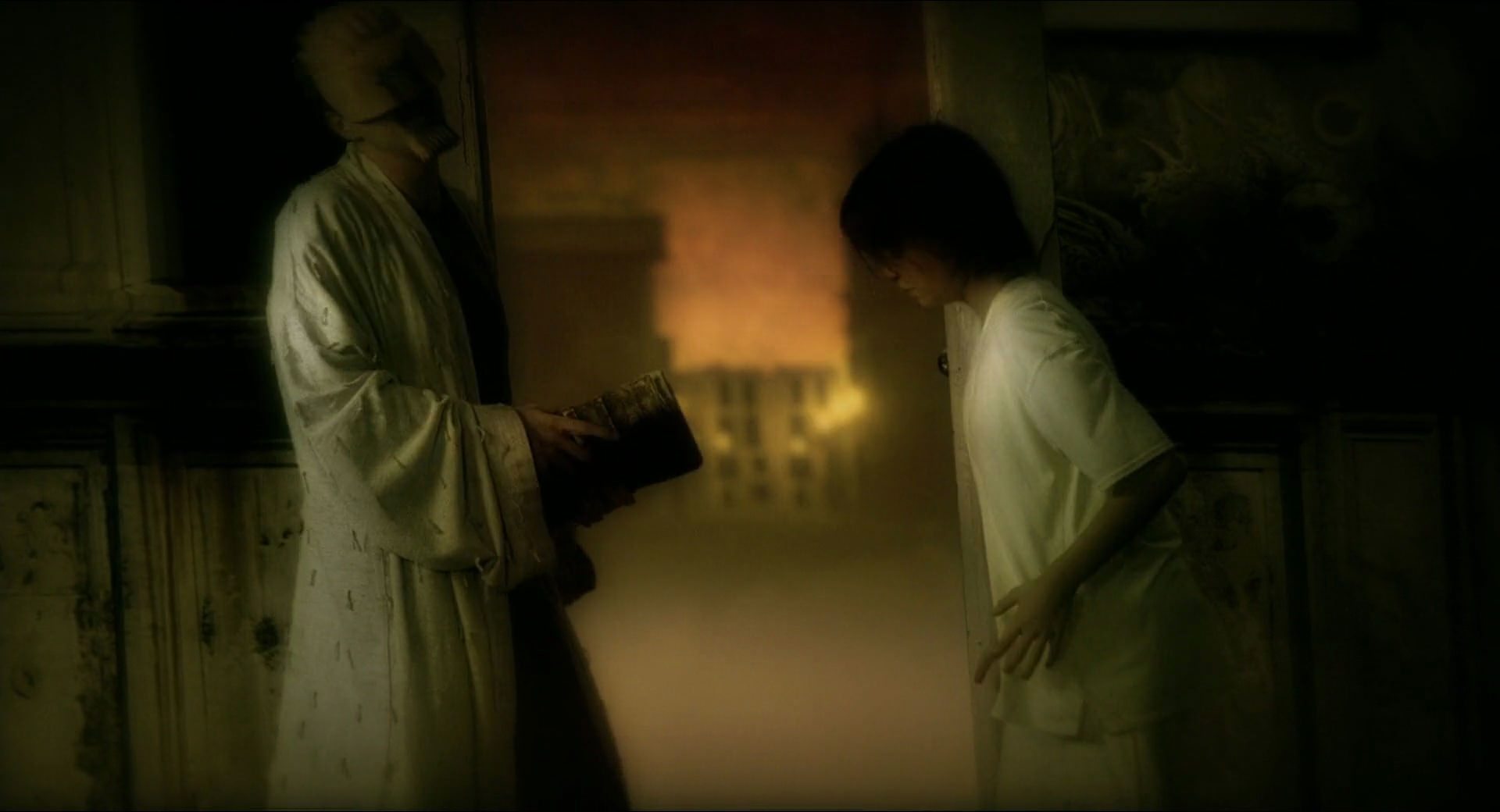
Mirrormask clearly shows during the viewing that there is a lot of untapped potential in the source material due to the lack of appropriate technology. Despite the archaic tools, the duo of McKean and Gaiman has made a mark on the consciousness of cinephiles, which for the latter means more adaptations and new scripts to write. If Mirrormask were made today – with the same creators but with current technology – they could spread their wings. Perhaps the wave of remakes will reach them too?

